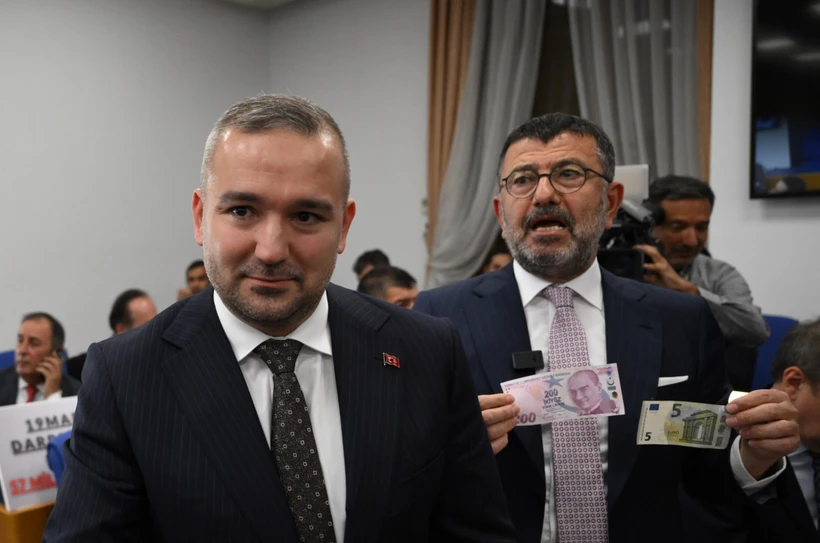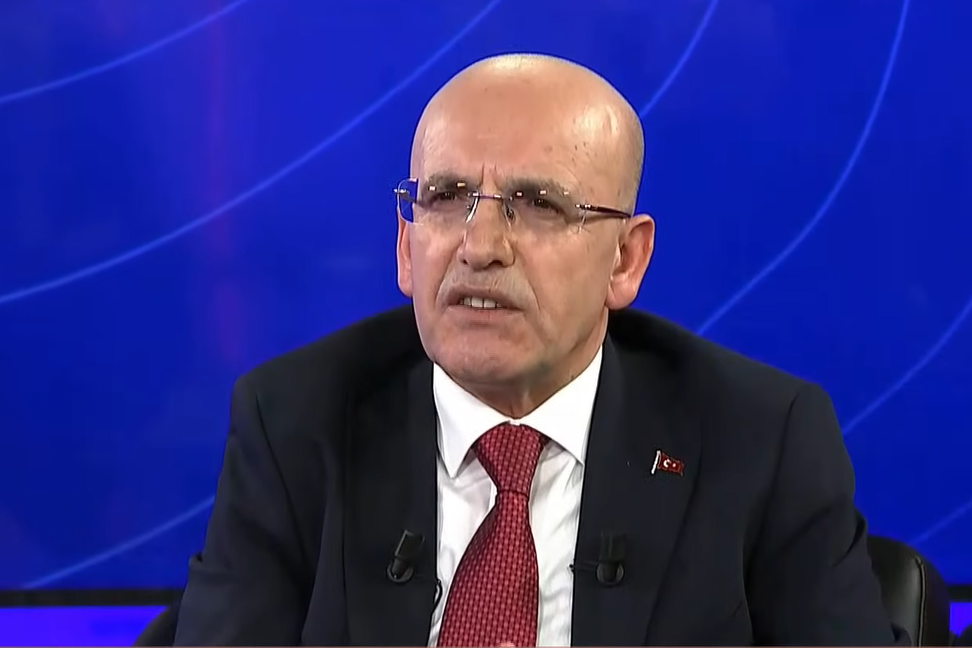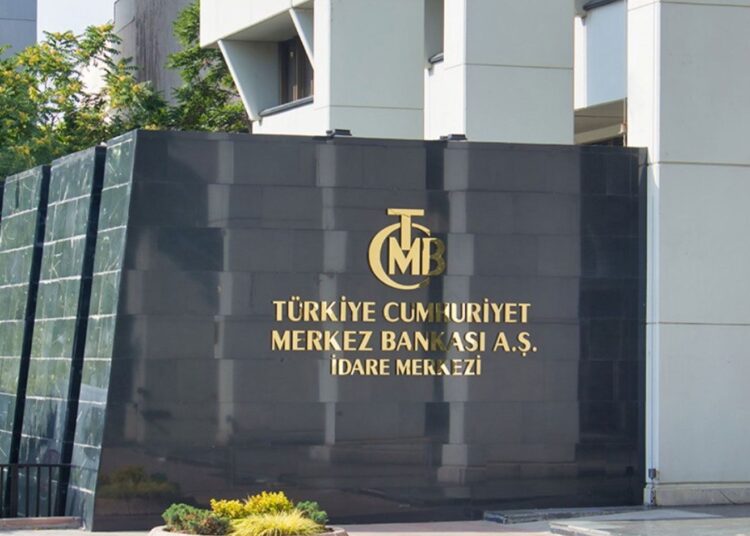Levent Kenez/Stockholm
At a tense session of Turkey’s parliamentary Budget and Planning Committee on May 6, opposition lawmakers accused the central bank of mismanaging the country’s economy and prioritizing political interests over financial stability. The session, attended by Turkish Central Bank Governor Fatih Karahan, came amid growing alarm over collapsing reserves and investor flight following the March arrest of Istanbul mayor and opposition presidential candidate Ekrem Imamoglu.
Turkey’s monetary policy trajectory is facing renewed scrutiny amid persistent inflation, depleted reserves and growing evidence that political priorities continue to shape central bank actions more than economic fundamentals. The parliamentary session brought these tensions into sharp focus, emphasizing structural imbalances that continue to undermine policy credibility and macroeconomic stability.
The Central Bank of the Republic of Turkey has undergone drastic policy shifts since 2021, when an unorthodox monetary strategy centered on the belief that lower interest rates would reduce inflation was adopted. Between September and December 2021, policy rates were reduced from 19 percent to 14 percent. Contrary to the intended effect, official consumer price inflation had surged past 80 percent by mid-2022. Simultaneously, the Turkish lira lost more than half its value, falling from 8.30 to more than 18.30 to the US dollar in a matter of months.

This approach was reversed after the 2023 elections, with the government signaling a return to conventional monetary policy. The benchmark interest rate has since been raised incrementally, to 50 percent by early 2024. Despite this, inflation remains high and expectations poorly anchored, suggesting that credibility gaps remain unresolved.
As of April 2025 inflation stood at 37.9 percent. The year-end inflation target, initially set at 17.5 percent in the government’s Medium-Term Program, was revised multiple times, first to 21 percent then to 24 percent. The central bank allows for a wide band of uncertainty between 19 percent and 29 percent, but current monthly averages indicate that year-end inflation is more likely to exceed 35 percent absent a drastic shift in trend.
Some economists insist that the official inflation figures announced by the Turkish Statistical Institute (TÜİK) do not reflect the true cost of living and accuse the government of manipulating the data for political purposes.
Core inflation indicators, including the average of six internal metrics and median-adjusted measures, suggest annualized inflation remains above 30 percent. These figures undermine the central bank’s message that disinflation is firmly underway. Independent estimates from the Inflation Research Group, or ENAG, put actual annual inflation above 70 percent.
Between March 22 and April 25, Turkey’s net international reserves excluding swaps fell from $66 billion to $17 billion, a $49 billion drop. Gross reserves declined from $171 billion to $141 billion in the same period. The fall coincided with heightened exchange rate volatility and political uncertainty following an internal government reshuffle in March.
The central bank acknowledged intervening in foreign exchange markets, citing global financial instability following the United States’ announcement of expanded tariffs on April 2. However, data patterns indicate that the reserve drawdown began before that event, suggesting domestic political dynamics were a primary driver.
To stabilize the exchange rate and anchor inflation expectations, the central bank raised its policy rate from 42.5 percent to 46 percent on April 17 and increased the overnight lending rate to 49 percent. It also resumed weekly repo auctions, extended Turkish lira deposit maturities and launched forward foreign exchange contracts to limit speculative pressure.
Official transcript of the parliamentary committee session where central bank policies were debated:
The central bank’s balance sheet has come under strain due to the currency-protected deposit program, known in Turkish as Kur Korumalı Mevduat, introduced in late 2021 to discourage dollarization. The program compensates depositors for exchange rate losses, placing a substantial burden on public finances.
In 2023 the central bank recorded a net loss of 818.2 billion Turkish lira, with 830 billion attributed to the currency-protected deposit scheme. In the first four months of 2024, additional losses amounting to over 700 billion lira were reported. These losses effectively eliminate the bank’s ability to transfer profits to the treasury, further tightening fiscal space amid already high budget deficits.
As of early 2025, total balances in the scheme have declined from a peak of $140 billion to $19 billion following regulatory curbs on corporate renewals. However, the program’s legacy continues to affect asset prices, particularly in real estate, and distorts the monetary transmission mechanism.
During the parliamentary session, lawmakers harshly criticized Governor Karahan for failing to speak openly about the political situation’s impact on markets. Erhan Usta, a former deputy finance minister, said Karahan’s silence undermined the bank’s credibility.
“Your job is to protect financial stability, not political narratives,” Usta said. “Why didn’t you warn the public that jailing the leading opposition figure would trigger capital flight? Why did you burn billions before raising interest rates?”
Despite burning through reserves, the central bank was eventually forced to raise its policy rate on April 17. Overnight borrowing and lending rates also climbed to 44.5 percent and 49 percent, respectively. Karahan did not directly address the political turmoil but defended the bank’s actions, saying it was committed to reducing inflation and stabilizing the lira. He acknowledged that service-sector inflation and food prices remained high but insisted disinflation was underway.
The economic fallout is being increasingly seen as a result of political decision-making rather than global or market forces. Critics say President Recep Tayyip Erdogan’s strategy to eliminate opponents, especially through the judiciary, is fueling financial instability.
Republican People’s Party Chairman Özgür Özel said at a press conference on April 11, “The central bank’s reserves belong to the people, not the president’s political agenda.”
Public opinion appears to support this view. Recent surveys show a majority of Turkish citizens believe Imamoglu’s arrest was politically motivated.
In a speech to his party’s parliamentary group on Tuesday, Özel accused Erdogan of staging a civilian coup with Imamoglu’s arrest and claimed that Finance Minister Mehmet Şimşek was providing financial cover for the government’s political crackdown.

Özel alleged that Şimşek personally disagreed with the handling of the Imamoglu case and considered resigning but ultimately refrained from doing so due to fear of political retaliation. He said Şimşek was likely to step down at the first opportunity.
The Finance Ministry has not responded to the claims, and Şimşek has made no public comment.
In a televised interview on May 5, Şimşek indicated that the government would pursue stricter fiscal policy, expanding tax enforcement and improving budget discipline.
“We will increase tax inspections and strengthen revenue-side discipline,” he said, noting that fiscal tightening would support the central bank’s disinflation strategy.
Speaking on recent market volatility following Imamoglu’s March 19 detention, Şimşek expressed optimism about Turkey’s long-term outlook.
“When the dust settles, Turkey’s value will become clear,” he said. “Interest rates have peaked and begun to decline. Reserves hit bottom and are rising again. The atmosphere is turning positive.”
Şimşek said he would soon begin international visits to secure long-term, equity-like capital, particularly for investment projects backed by global financial institutions.
“We care about stable long-term funding rather than short-term speculative flows,” he added. “When things calm down, we expect renewed interest in Turkish equities. We do not evaluate our position based solely on short-term indicators.”












